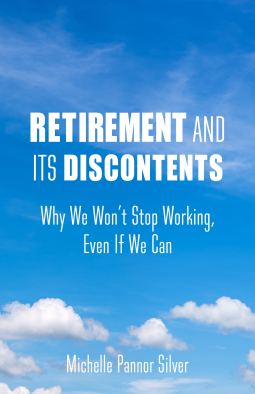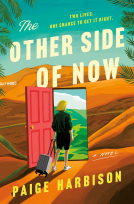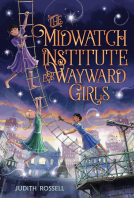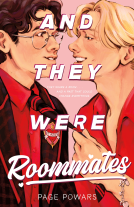
Retirement and Its Discontents
Why We Won't Stop Working, Even If We Can
by Michelle Pannor Silver
This title was previously available on NetGalley and is now archived.
Send NetGalley books directly to your Kindle or Kindle app
1
To read on a Kindle or Kindle app, please add kindle@netgalley.com as an approved email address to receive files in your Amazon account. Click here for step-by-step instructions.
2
Also find your Kindle email address within your Amazon account, and enter it here.
Pub Date Aug 07 2018 | Archive Date Nov 29 2019
Talking about this book? Use #RetirementAndItsDiscontents #NetGalley. More hashtag tips!
Description
In Retirement and Its Discontents, Michelle Pannor Silver considers how we confront the mismatch between idealized and actual retirement. She follows doctors, CEOs, elite athletes, professors, and homemakers during their transition to retirement as they struggle to recalibrate their sense of purpose and self-worth. The work ethic and passion that helped these retirees succeed can make giving in to retirement more difficult, as they confront newfound leisure time with uncertainty and guilt. Drawing on in-depth interviews that capture a range of perceptions and common concerns about what it means to be retired, Silver emphasizes the significance of creating new retirement strategies that support social connectedness and personal fulfillment while countering ageist stereotypes about productivity and employment. A richly detailed and deeply personal exploration of the challenges faced by accomplished retirees, Retirement and Its Discontents demonstrates the importance of personal identity in forging sustainable social norms around retirement and helps us to rethink some of the new challenges for aging societies.
Available Editions
| EDITION | Other Format |
| ISBN | 9780231188562 |
| PRICE | $32.00 (USD) |
Featured Reviews
Retirement. Mandatory withdrawal from the workplace was until recently as black and white a transition as the passing of the seasons. Now, with the retirement age going further and further up and the problem of an ageing generation to be supported by an ever-decreasing workforce, this study is a timely reminder that perhaps our future definitions of what retirement needs to be may need redefining. The baby boomers at least have lived longer than those generations where death often followed the first year of retirement.
For those who do have a good pension to look forward to, a future life of leisure pottering in the garden, playing golf or just socialising at bridge parties may be all well and good.. Beyond whether not there is any nest egg to draw upon or the state pension will be enough to subsidy on, the question then is whether or not enforced idleness at any prescribed age may be more a curse than a gift. This study explores these issues specifically with those who have struggled with identity issues because of a strong work ethic. Five in-depth interviews were carried out with with five categories of retirees: doctors, CEO's, athletes, university professors and those who has opted to keep house instead of work. The latter may include unemployed people or individuals with independent means though motherhood, as pointed out, is even more 24/7 as a life path than following a career in either of the life paths already mentioned.
From each of the sets of interviews, evidence does seem to bear out the evidence that for most of these individuals, retirement was experienced not as a reward for a life well lived, but more as being unemployed - perhaps a dangerous comparison to make, when certain governments devoted to austerity are beginning to call a pension lo g contributed to as a 'benefit.' No amount of cruises, coffee mornings or golf rounds could make up for the loss of identity, making a contribution to society that retirement entails. One professor went back to work, even though he was unpaid. Doctors went on to other areas where their expertise could come in useful. The entrepreneurial spirit did not leave the CEO's.
For the housewives alone, it seems retirement did confer some kind of dignity in status.
The material did cover the case of one doctor who was retired because he was seen as a danger to his patients. Other doctors and CEO'S did lament the lack of a true work ethic in the newer generation of medical, when the housewives often expressed jealousy of the wider choice open to women and mothers nowadays.
What the study basically recommends is that individuals should be able to decide for themselves when they should retire rather than having a specific birthday mark a mandatory time, with perhaps a more phased period before total withdrawal from the workplace. Older workers may then still feel free to give if their experience in the workplace according to their level of fitness.
There are two appendices at the back explaining how the interviews were carried out and methods used to allow the stories of the interviewees to speak for themselves without too much author interpretation and bearing in mind how any rexmcihnting may be embellished due to subjective interpretations. This makes the sociology of this study more reliable, less anecdotal, though on an anecdotal level. However, this study is certainly interesting enough a read to make it eminently relateable to all readers, whether or not they may be about to face retirement themselves.
 catherine h, Reviewer
catherine h, Reviewer
Given that I am looking retirement in the face, I thought this books was thought provoking. I kind have always thought everyone looked forward retirement with joy. I know I am! I have already written my self a whole new past and persona! But it was interesting to read others perspectives of it. Michelle Silver did her homework; good read.
For many people, retirement is something to be looked forward to and planned for, often decades in advance. (My coworker, with eight years left until he can retire with full benefits, already has an hourly countdown on his computer.) But for some, especially high-profile professionals whose identity is tied into their jobs, retirement means a major change in life and sense of worth.
In this interesting, insightful book, Silver explores the effect of retirement on doctors, CEOs, athletes, etc., as well as homemakers--an interesting group, since they've often never worked outside the home and don't have a retirement party, for example.


















